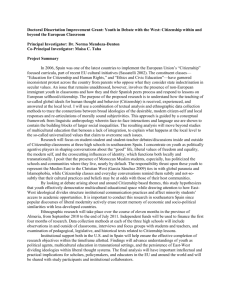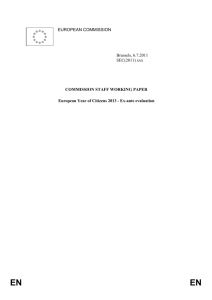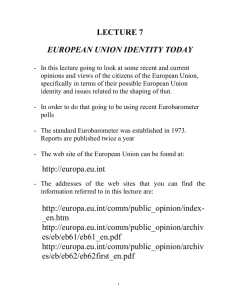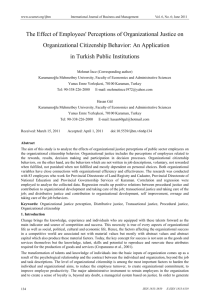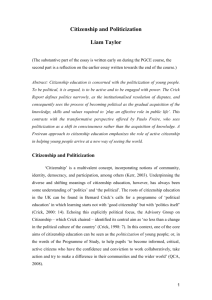Political Participation & EU Citizenship Questions
advertisement
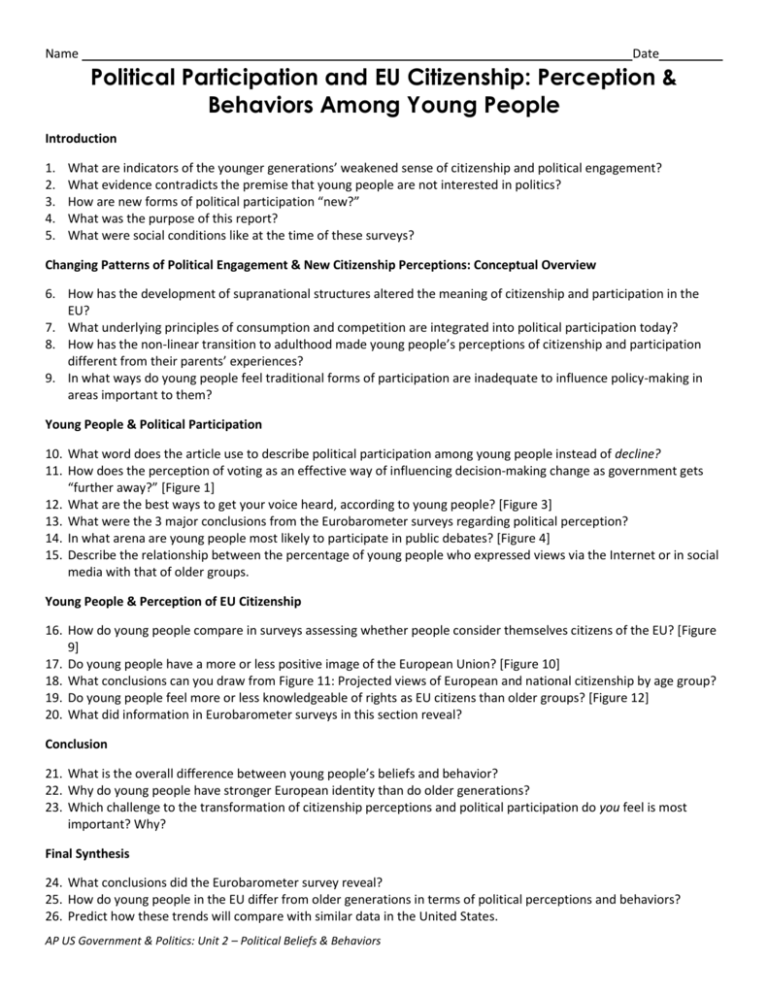
Name Date Political Participation and EU Citizenship: Perception & Behaviors Among Young People Introduction 1. 2. 3. 4. 5. What are indicators of the younger generations’ weakened sense of citizenship and political engagement? What evidence contradicts the premise that young people are not interested in politics? How are new forms of political participation “new?” What was the purpose of this report? What were social conditions like at the time of these surveys? Changing Patterns of Political Engagement & New Citizenship Perceptions: Conceptual Overview 6. How has the development of supranational structures altered the meaning of citizenship and participation in the EU? 7. What underlying principles of consumption and competition are integrated into political participation today? 8. How has the non-linear transition to adulthood made young people’s perceptions of citizenship and participation different from their parents’ experiences? 9. In what ways do young people feel traditional forms of participation are inadequate to influence policy-making in areas important to them? Young People & Political Participation 10. What word does the article use to describe political participation among young people instead of decline? 11. How does the perception of voting as an effective way of influencing decision-making change as government gets “further away?” [Figure 1] 12. What are the best ways to get your voice heard, according to young people? [Figure 3] 13. What were the 3 major conclusions from the Eurobarometer surveys regarding political perception? 14. In what arena are young people most likely to participate in public debates? [Figure 4] 15. Describe the relationship between the percentage of young people who expressed views via the Internet or in social media with that of older groups. Young People & Perception of EU Citizenship 16. How do young people compare in surveys assessing whether people consider themselves citizens of the EU? [Figure 9] 17. Do young people have a more or less positive image of the European Union? [Figure 10] 18. What conclusions can you draw from Figure 11: Projected views of European and national citizenship by age group? 19. Do young people feel more or less knowledgeable of rights as EU citizens than older groups? [Figure 12] 20. What did information in Eurobarometer surveys in this section reveal? Conclusion 21. What is the overall difference between young people’s beliefs and behavior? 22. Why do young people have stronger European identity than do older generations? 23. Which challenge to the transformation of citizenship perceptions and political participation do you feel is most important? Why? Final Synthesis 24. What conclusions did the Eurobarometer survey reveal? 25. How do young people in the EU differ from older generations in terms of political perceptions and behaviors? 26. Predict how these trends will compare with similar data in the United States. AP US Government & Politics: Unit 2 – Political Beliefs & Behaviors






